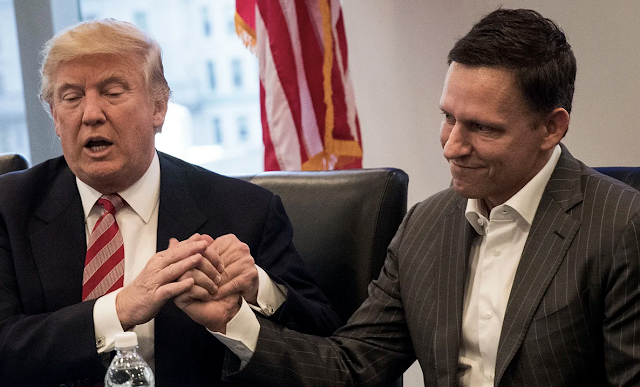The recent blacklisting of British punk-rap group Bob Vylan, following their provocative chant of “death, death to the IDF” at Glastonbury 2025, exposes a chilling double standard in Western governance.
The swift and heavy-handed response, launching a criminal investigation, revoking the band’s visas, cancelling future concerts, and seeing them dropped by their agency, stands in stark contrast to western government's silence on Israel’s ongoing atrocities in Gaza.
This is not merely an attack on free speech; it's a grotesque display of selective outrage, where dissent against a genocidal military machine is punished while mass starvation and slaughter is ignored.
Yesterday, The Irish News reported:
Police investigate Bob Vylan over ‘death to IDF’ call at gig before Glastonbury
Punk duo Bob Vylan are being investigated by police after allegedly calling for “death to every single IDF soldier out there” at a concert one month before Glastonbury.
The pair are already being investigated by Avon and Somerset Police over their appearance at Worthy Farm when rapper Bobby Vylan led crowds in chants of “death, death to the IDF (Israel Defence Forces)” during their livestreamed performance at the Somerset music festival last weekend.
In video footage, Bobby Vylan, whose real name is reportedly Pascal Robinson-Foster, 34, appears to be at Alexandra Palace telling crowds: “Death to every single IDF soldier out there as an agent of terror for Israel. Death to the IDF.”
Bob Vylan’s chant, raw and unfiltered, was a cry against the Israel Defense Forces’ documented brutality, which has seen over 56,000 Palestinians killed since October 2023, many of them women and children. The United Nations has described Israel’s actions as consistent with genocide, yet Western governments continue to arm and defend Israel while condemning artists who dare speak truth to power.
Bobby Vylan’s words, far from inciting violence, we're a justified response to a military force that has shot unarmed Palestinians seeking food aid, with soldiers admitting to using “unnecessary lethal force” against civilians. This is the real scandal, not a musician’s chant, but the West’s complicity in a humanitarian catastrophe.
Silence is not an option. pic.twitter.com/i5ubnDntUo
— Bob Vylan (@BobbyVylan) July 1, 2025
Meanwhile, Foreign Minister Winston Peters has sat on his hands over what is clearly a terrorist group, the IDF, as New Zealand quietly removed the Proud Boys from its terrorist list, despite their history of violent assaults, including the January 6 Capitol riot in the US, which caused the deaths of nine people, including police officers.
Today, RNZ reported:
It's no longer illegal to be a proudly violent Proud Boy
Then, in 2022, the New Zealand government took a bold stance, listing the Proud Boys as a terrorist entity, a move that made global headlines and was praised by anti-extremism campaigners.
"It was big news... and what it would mean in practice was that anyone who supported or funded or participated in Proud Boys actions here was committing a criminal act, imprisonable by up to seven years, so it was a big deal," Penfold says.
But then last month, without any fanfare, the group slipped off the list of designated terrorist entities.
The only statement on the move was released on the website of the New Zealand Gazette - the newspaper of the government. Penfold describes it as bland and brief.
"The designation had been made under the Terrorism Suppression Act... and every three years that designation will expire unless the prime minister seeks to extend it."
When asked why he didn't extend it, a response to Penfold from the prime minister's office "didn't specifically answer that", but she was told "the Proud Boys remain on the radar... and if any new information comes to hand, they will consider it."
"Those who monitor terrorist organisations and far-right extremist groups... are really concerned at this step that the designation has been allowed to lapse", Penfold says.
So as New Zealand grapples with the rise of conspiracy-fuelled protests and declining trust in democratic institutions, the Proud Boys' shadow, although faint, may still be felt.
The government should not be ignoring the Proud Boys' role in spreading white supremacist propaganda, propaganda that has lead directly to people dying. This leniency towards far-right extremists, who've incited and committed real violence, contrasts sharply with the heavy-handed crackdowns on pro-Palestinian voices.
Brenton Tarrant, the Christchurch mosque shooter, was radicalised on websites like 4chan and 8chan, where white supremacist narratives, including the "Great Replacement" conspiracy, festered in unmoderated forums. These same platforms, known for their extremist subcultures, were also used by the Proud Boys to propagate their "Western chauvinist" ideology, share memes, and recruit members, creating an overlapping digital ecosystem of hate.
Other white supremacist figures linked to the Proud Boys and similar
online spaces include Dylann Roof, who massacred nine Black worshippers
in Charleston in 2015 and was active on sites like Stormfront...and
Patrick Crusius, the 2019 El Paso shooter, who posted a manifesto on
8chan echoing the same anti-immigrant rhetoric embraced by Proud Boys,
which is earily similar to the rhetoric used by Donald Trump to justify
the illegal ICE abductions. The shared use of these platforms
underscores a broader network of far-right radicalisation fuelling
violent acts.
On Tuesday, the NZ Herald reported:
Christchurch mosque attacks: Podcast questions lone wolf theory
Tarrant was asked to join the Lads Society, an Australian white nationalist and Islamophobic extremist group, in 2017.
Following Tarrant’s attack in Christchurch, the group’s members posted to a closed social media channel.
Some celebrated the attack, others questioned if it was a false flag, possibly to restrict firearms access in New Zealand.
“This one’s not a false flag. Take my word for it,” the group’s founder Thomas Sewell said.
“He seems to know more than the others,” another member replied.
“What do you mean, take my word for it. That almost sounds like you know the cobber.”
Sewell then responded – Tarrant had “been in the scene for a while”.
Sewell later compared Tarrant to Nelson Mandela, saying he would be imprisoned until “we win the revolution”.
In stark contrast, the designation of Palestine Action as a terrorist group for spray-painting planes and buildings with red paint is another grotesque overreach. This non-violent protest group, which seeks to disrupt western arms supplies to Israel, is branded a threat to national security, while Israel’s starvation policies and bombing of civilians in tents and aid sites go unchallenged.
In Gaza, hundreds have been killed near food distribution hubs, with Israeli soldiers openly admitting to treating starving women and children as a “hostile force.” Western governments offer tepid criticisms at best, while their actions, continued arms exports and diplomatic support, enable the carnage.
The hypocrisy extends beyond individual cases to systemic patterns of enforcement. Across Western nations, authorities deploy extraordinary measures against pro-Palestinian demonstrations while showing remarkable restraint toward far-right rallies that openly promote racial hatred. Police forces that brutalise peaceful protesters demanding an end to the collective punishment in Gaza then turn their attention to escorting white supremacist marches safely through diverse communities.
Free speech advocates who once championed absolute protection for controversial expression now perform intellectual contortions to justify censoring criticism of unjustified military actions. These same voices, who defended the rights of Holocaust deniers and racial provocateurs under abstract principles of open discourse, suddenly discover compelling state interests that justify silencing uncomfortable truths about contemporary violence.
UK PM Keir Starmer has condemned Bob Vylan’s “Death to the IDF” chant at Glastonbury, calling it “appalling hate speech” and saying no artist should incite violence or make threats on stage.
— Al Jazeera English (@AJEnglish) June 29, 2025
🔴 LIVE updates: https://t.co/hdtNygFZAk pic.twitter.com/HJlqAKruoQ
The Bob Vylan controversy thus represents far more than an isolated incident of artistic censorship. It exemplifies a broader authoritarian drift wherein Western governments abandon foundational democratic principles when confronted with dissent that threatens preferred narratives. When free speech becomes conditional upon political convenience, democracy itself withers.
This is the West’s moral collapse: a world where punk bands are vilified for decrying genocide, but white supremacists and war criminals are indulged. Bob Vylan’s blacklisting isn't just an attack on art; it's a warning to all who dare challenge the status quo. As socialist Jewish activist Naomi Wimborne-Idrissi noted, suppressing outrage against a “televised genocide” only fuels its expression. If New Zealand and its Western allies truly valued free speech and justice, they would hold Israel to account, not silence those who speak for the oppressed.



















